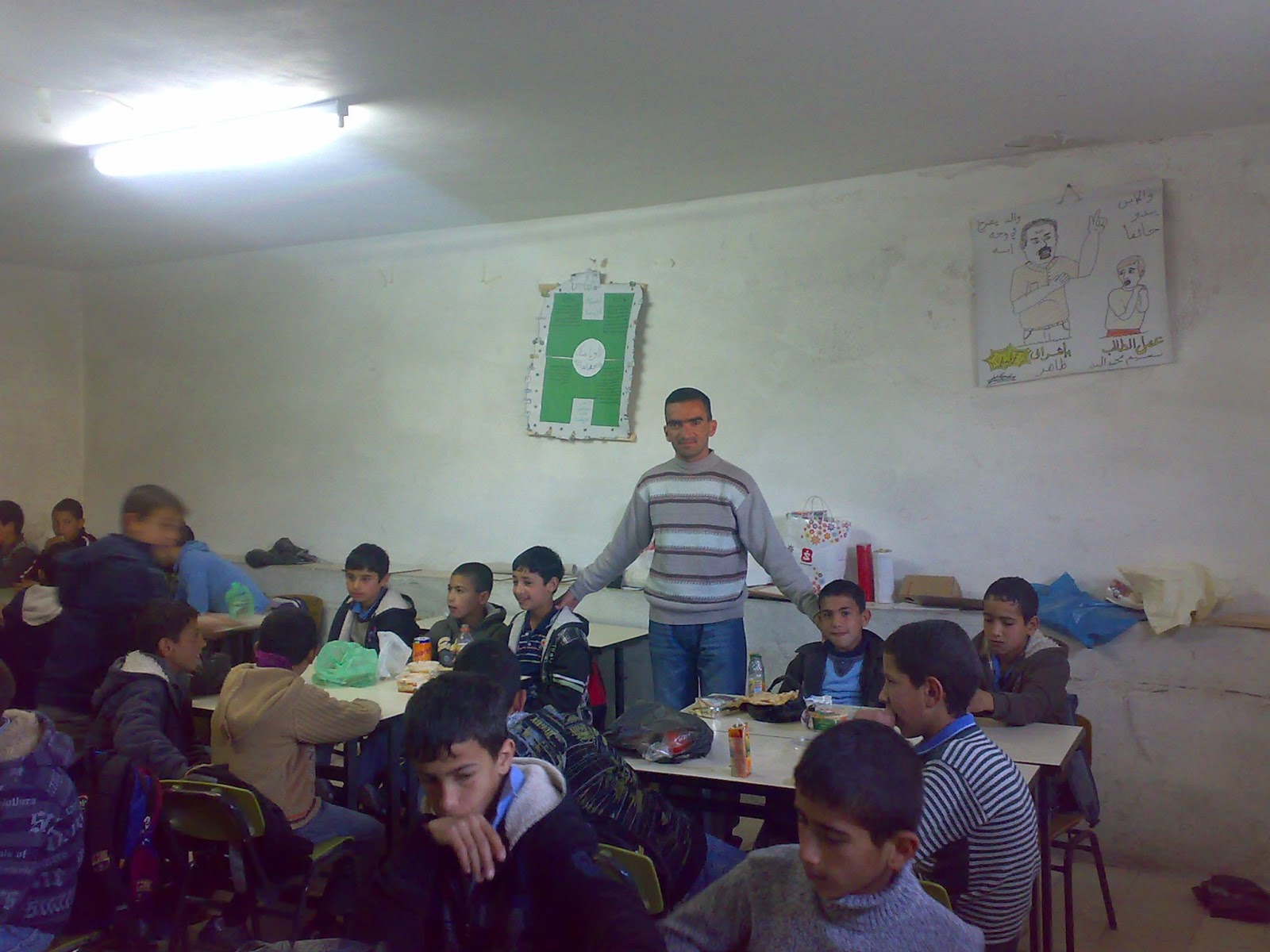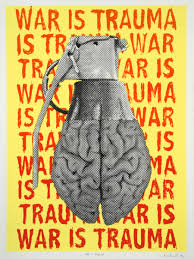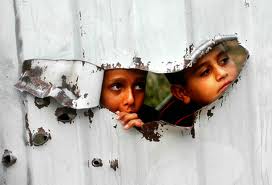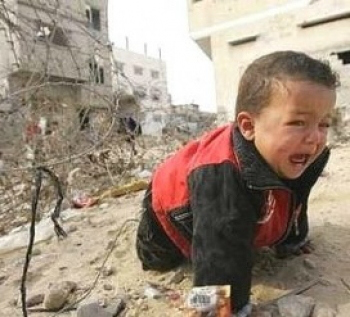Trauma Specialists needed in Palestine, by Issam Sahori

research project:
The idea of the project was born by a small group of teachers from Bethlehem. The objective
of the project was to develop the services available and provided to those who
suffer from psychological trauma in Palestine
especially children. We seek to make it one of the most prominent projects
aiming at training and treatment acceptable in Palestine. Also, we seek to make it as a
source of information for the professionals and non-professionals of the field
of trauma. The project also aims at harmonization of the various institutions
concerning with trauma in Palestine,
and prompts the efforts of these institutions for cooperation in the fields of
research and practice.

Specialists:
to develop effective ways of treating the symptoms of post-traumatic stress
caused by the accidents of war. Treatment is based on a behavioral – mental –
cognitive model.
The Group’s activities focus on four key areas, namely:
Training on Treating Trauma:
The team members are working towards developing courses (trends) for the
professionals in the field of mental health and schools and kindergartens’
teachers all over the country. They are taught the latest techniques for
dealing with the symptoms of post-traumatic stress (PTSD) and associated
disorders. We aim at providing the workers for mental health centers, social
services and schools’ psychologists with courses in this field. Additionally,
our aim is to provide courses on the shock and trauma of mental health
professionals who wish to broaden their base of knowledge and skills in this
area.

We are working towards developing a training program for teachers,
psychologists and consultants in order to learn about recovery (Resilience),
and how they can interact with the pressure being a subjective of shocks
continuously. These programs assure teaching the skills to teachers and
students to help them in developing their resources to encounter long-term
pressure status.
Methods of Treatment Development:
 We aim at develop tools for
We aim at develop tools fordetecting students suffer from the post-traumatic symptoms. This requires
working in cooperation with the parents’ council for this project. In addition,
we aim at developing a limited-term group therapy program. Therefore, we must
deal with school as a base for that program in favor of students who were
discovered to have symptoms of high post-traumatic stress disorder, or students
who show a strong post-traumatic distress.
Q: What is the psychological trauma?
The original meaning of the Greek word “Tauma” (trauma) is an injury
or damage caused to the body tissues. Today, we use the expression
“psychological trauma” to describe a status of someone who
experienced an incident that hurt him. Recently, there is a growing awareness
of the fact that persons who are exposed to such war attacks are not physically
injured, but comprehensive harm as well. They are victims of trauma, who we
often hear about them after the war.
There are two factors make the shocking event:
of death or serious injury happens to you or any other person.
feeling of fear and helplessness.
The shocking incident isn’t usually a stop worthy event, can not be controlled.
It destroys our
sense of security, and leaves us vulnerable to infection and in a case of
turbulent. There is no need for the event to be happened to the person
directly. To get news of one of you close relatives’ death or watching a wars
on television can be a shocking event, harmed people are in need to
professional help accordingly.

Q: What is the post-traumatic stress disorder?
Post-traumatic stress disorder PTSD is an anxiety disorder caused by being
exposed to a traumatic event. A vast sector of the Palestinians is a target of
the traumatic events up to life-threatening events. The most important event of
them is the occupation’s attacks. To experience one of these events or to watch
them creates feelings of fear, powerlessness and anger, which is sometime against
the whole world because it suddenly becomes a threat to life and it becomes
unworthy to stop for it.
In most cases, the event continues to live in our awareness for a while but
with the help of family and friends most people succeed in dealing with the
event and are able to return to perform their daily routine. However, a
significant number will suffer from post-traumatic symptoms. Their
post-traumatic stress disorder PTSD is developed. The people who suffer from
PTSD pass hard times in the aftermath of the shocking event, which continues to
affect their daily lives long after the expiry of the event. In many cases,
those who suffer from PTSD many symptoms impede their normal lives. They may
experience going back to the event itself and feel that it is repeated again
and again. The nightmares, concentration’s difficulty concentrating and anxiety
represent continuous additional symptoms for this disorder.
Post-traumatic stress disorder PTSD causes difficulty of great distress to the
person who suffers from it and those who live with him as well. It becomes as
if the suffering person wakes up every morning on the same shocking-day; he
constantly repeats the same shocking event every hour of daylight hours.
Therefore, to be aware of the various symptoms of PTSD can help you determine
if you or someone close to you suffer from PTSD.
* The Post-traumatic Stress Disorder’s Symptoms:
The symptoms that characterize post-traumatic stress disorder can be divided
into three main categories:
experience.
Excitement.
has experienced a trauma may suffer over the shock even if they only show few
symptoms. We have a self-test for the symptoms of post-traumatic stress for
those who wish to test themselves or someone close to them has experienced a
traumatic event.

Below is a list of the main symptoms of post-traumatic stress disorder (PTSD):
the experience:
attacking from the shock, and images and ideas relating to the event re-emerge
again and again causing great distress.
nightmares related to the shock and repeated over several nights.
to the past a continuous and permanent sense of shocking event that the person
is not over and he is catching it.
Feelings
of pressure and anxiety – being exposed to the thrills or incentives related to
the trauma or stand for it.
Avoiding
any thoughts, feelings or conversations related to the trauma. Avoiding
places, events and people remember the trauma.
Losing
being interested in the events which were considered amusing.
A sense of
alienation and estrangement from others.
Feeling
the difficulty of the sense and the expression of positive emotion, such as happiness
and love.
Losing the
desire to think about future or talk about it.
3. The Extreme Excitement:
problems during sleeping.
Suffering
nervousness and anger spasms.
Facing
difficulties in concentration and studying.
A sense of
preparedness and alert.
Over-reaction
against high noise and sudden movements.
Repeated feelings of guilteness related to the results of trauma or the behavior of the
victim praised the event.
Hypochondriac
deal with the shocking event.
Continuous
ideas related to the trauma.
* Trauma: Encounter occurs after the traumatic event could be difficult since the daily routine suddenly seems shocking and carries danger with it. Many people find it
difficult to perform even the simplest tasks. This situation does not affect
the person who was directly exposed to the trauma, but also affect the
surrounding people including the survivors of the event, such as: the family
members, friends and work colleagues.
* Self-care in the aftermath of the shock
§ Ask
yourself if you are in need of a professional help
repeated thoughts of the trauma and complaints of physical pains all these
symptoms are normal and usually appear in the period that follows the trauma,
but if these symptoms appear for more than a few weeks, and increased, or if it
causes distress disrupts the daily functions’ performance, ask for a
professional help.
§ Talk to
family and friends
provided by the family and friends have an enormous impact on facing shocks. It
is important to share ideas and feelings with loved ones and friends. After
that, if others have tried to talk about the trauma you have experienced and
you do not wish to talk about it, you have every right to refuse to talk to
them and you have to express your refusal to be tactful.
§ Learn to
be experts in trauma
with the trauma is to have knowledge about the subject. The more you know about
trauma, its consequences and methods of overcoming them, it is likely to be
able to treat what you have experienced. One of the ways in which we recommend
to do so is to read books and Web sites about the subject.
§ Keep a
healthy life style
Ingest healthy food, regular meals and be keen on doing enough exercises.
§ Relaxation
exercises
the pressure and boredom faced in everyday life. The more is practice of
relaxation exercises, the more your body has become more relaxed and balanced.
This would have a direct effect on your mood and calm procedure. Try to do
exercises once or twice a day, for a few minutes each time.
§ Avoid
self-judgment
patient who was recovered from a trauma is responsible for the situation he
found himself in it. Do not be angry from yourself and do not blame yourself
for your behaviors during and after the trauma. Even your reactions such as
anxiety, worry and depression are perfectly normal after the shock. Hence, to
blame yourself is going to make things more difficult for you. In case you feel
guilt, anger or sadness share these feelings with others as this may help you
to gain another point of view on the situation you have. In spite of this, if you
still feel that your act is outside the scope of your control, or it is beyond
the limits of what is considered normal (such as violent behavior, which harm
you and other people) then you should request professional help immediately.
§ Avoid
making important decisions
shocking event, you may experience many negative emotions. But these feelings
will pass with time to give way to more positive emotions and a return to a
normal life. Because of that, it is important to avoid making important
decisions in the weeks after the shocking event not to regret later. Remind
yourself that the sentiments you have now, whatever their severity, they may be
fleeting. So, it is quite possible that the consideration of the decisions made
by an erroneous order to avoid regrets later.
* Supporting and Treating TraumaThere are three stages to work through post-traumatic stress disorder:
1. Secure the
foothold of the person seeking treatment.
2. Working
through the traumatic experience.
3. Re-establishing
the social connections and the ability of the everyday life performance.
to child’s liberation from the shackles of the shock and help him live in the
present.
* Cognitive behavioral therapy CBT
beliefs, and it deals with the patterns of their behavior. The method is based
on key technical modes:
therapy – This
method focuses on ideas and beliefs, and focuses on actions arising from them.
Cognitive therapy defines these types of intellectual knowledge, analyzes and
provides alternative ways of thinking which are more realistic and positive.
CBT is exposure … Encounter is bravely and directly carried out confronting
with the trauma through exposing it, where the person imagines the event, talks
about it and exposes himself gradually to pain stimuli makes him remember the
trauma. This procedure has to be repeated several times under the supervision
of the processor in a safe environment. This procedure will initially excite
strong emotions, but at a certain stage, the person will be as a
“routine” for these ideas. Subsequently, they lose their authority to him.
him after the trauma?
sympathetic listener
wants to talk about what happened to him, listen to him and make him feel that
you are there to support him. On the other hand, if the survivors do not want to
talk about the shock, it is not wise to put pressure on them or get them to
talk about it, because this will exacerbate the feelings of anger and
disability for which they feel in that moment. Some people need a time so that
they can tell their story.
a safe and quiet environment
quiet environment with enough regular, healthy, sport and physical meals. Being
back to the regular monotony, including going to school is very important in
the process of recovery.
being a judge
person who has experienced the shock and not put the blame on him or on his
behavior in the wake of the shock.
abnormal behavior and ask for professional help immediately
levels of distress – The various symptoms such as fears, nightmares, thoughts
of the shocking event and complaints of pain are the normal symptoms appear in
the weeks following the event. However, if these symptoms continue for more
than a few weeks after the shock and start to get worse or impede the
performance of the functions of everyday, so you have to ask for a professional
help.
§ Be an
expert in trauma
dealing with trauma is the knowledge of the subject. The more you know about
the trauma and its consequences, the more is your efficiency in facing the
coming weeks and months after the shocking event. Reading books and logging on
the internet for information related to the subject is one of the rich accesses
to this information.
During war:
War puts in front of us all many challenges; pressure, anxiety, nervousness and
fatigue which are common emotions during this high-strung situation. It is
represented by study, work and home.
talk with children about war?
calm down your children during war?
saved from war safely?
NEWS
talk with children about war?
§ Try to
listen and respond without taking exclusive possession of speech or its
direction.
§ Tell your
child information about the situation as proper as possible and according to
the level of interest shown by the child. Be keen on providing him with
information which is appropriate to his cognitive and mental abilities.
§ Try to
answer your child’s questions, even if they are difficult or disturbing you. Do
not also miss any questions or topics by saying: “This is not
important”, or “Let’s not to talk about it”. If your child asks
a question, it deserves an answer.
§ Try to
avoid descriptions of excessive excitement or wordiness about the difficult
events, such as the effects of non-conventional weapons. Do not forget that
your role is to calm your children down.
Prepare your child to the time
of war’s routine
§ Explain to your child what to do if I heard
the siren and I am at house, kindergarten or school. Check this information
with him to ensure he could understand. This information will give him a sense
of understanding and control of the situation.
§ Ask him to do simple tasks being responsible
for them in case of emergency. For example, during hearing a warning siren, the
child will be responsible for the operation of television in the shelter or the
safe room. In this way, he can feel that he is able to play a role in his
family.
§ Use your
sense of humor. Humor helps to reduce tension, gives more fun for routine and
reduces the dangerous part.
§ Explain to
your children that feeling such as fear and anger are accepted and normal.
§ Do not
judge or criticize those feelings but confirm the fact that they are normal
feelings and are not wrong.
your child that the others feel fear too. Give examples to your child for ideal
people like you, his ancestors and friends who also feel fear and anger.
your child that he can restore to you if he feels unpleasant feelings, and you
are ready to talk to him about them.
§ Be honest
and do not be ashamed to say that you do not know the answer to a question
asked by your child.
§ Be aware
of your feelings. Do not hide your fears; but do not overwhelm your child by feelings dominate
him.
§ Use
non-verbal communications as well.
§ A hug is
sometimes the best way to show your child that you care about it. Show your
love and care towards your child in non-verbal ways. This is not lesser
important than lengthy and detailed explanation.
§ Reduced
the exposure of your child to information that is supplied by media.
§ Most of
the information presented by television news programs and updates are not
suitable for young children. Therefore, parents should monitor children’s
television watching. Try to watch TV with your children to be able to discuss
with them what you watched together, and explain what they have not understood.
2. How do
you calm down your children during war
The time of war is the period
of tension and a great pressure. The daily life of us has changed
significantly. Many of us are worried about our dears who live in places, which
are vulnerable to the threat or in the front line. This pressure can lead to turning
us to stateless patience, nervous and susceptible to moods, crying and even
outbreaks of discontent and anger. All these reactions affect our children. It
is important to calm our children and ourselves. It can be done by doing some
exercises to find what suits you.
Breathing exercise for you and your child:
It is a simple exercise can be done with your children:Take a deep breath in through the nose and out the air through the mouth.
During breathing slowly out, close your eyes and try to feel calmness. Take a
short break between breaths and continue in this way. Take care of yourselves.
During breathing, you can imagine the word “calmness”. Stick your eyes closed
and continue the exercise for several minutes. After that, try to do the exercise
with your children.
Other ways to calm down yourself:
physical activity can release tensions.
stories, known needs, music and prayer can be calming. It is important to
diagnose with each child the matters that affect and help to bring peace.
feelings in creative ways can be a soothing factor for children. It is
important to enable the child to express his feelings including fear and
uncertainty. Drawing is a good way for many children.
a good way for the various emotional expression. You can help your children to
write a story, diaries or letters to the relatives or family friends.
learn the appropriate responses by considering and watching the parents. It is
important to find ways to help you, as parents and adults, to learn
confrontation.
The ways to your personal savage: How
can you safely survive the war?
War poses many challenges for all of us. Pressure, anxiety, severe mood and
fatigue are common conditions in the development of such pressing situation. We
may feel that our stock strength has been exhausted. This may therefore affect
our studies, our house and us. Therefore, the aim of our project is to provide
you with the tools to deal with this pressing situation successfully. It is
clear that these tools cannot change the political reality, but can change your
personal reality and help you to overcome the war or other hardships in
security. These tools also aim at helping you to become calmer, healthier and
stronger.
* Committed to the daily routine:
Routine creates a safety island in a sea of loss of trust. Maintaining routine
shows you and those around you that you are strong and capable of recovery.
This is a declaration to those around you that you continue to live in hope, in
spite of the obstacles you face on your way.
* Be keen on having healthy food and doing physical exercises and getting
enough sleep.
Fit body is the basis of fit
spirit. Keep your body fit in order to help you deal with the situation. Not to
represent another burden, you must treat it.
* Practice relaxation:
Daily relaxation can help in dealing with the pressure of everyday life … The
more you practice relaxation, the more your body calm and balance … This will
have a direct impact on the mood and the clarity of your mind.
* Talk about your feelings with people you consider them important for you
* Helping others
The others may be your family, children or friends who are in need of little
pushing and support.
Allocated time during the day to enjoy the effective exercise such as: sports,
art or music, reading or pleasure for clarifying your mind. This will help you
remind that even in the darkest times of the day there are moments of pleasure.
* Be an expert
unknown things. When you be aware of the situation, it becomes easy for us to
plan how to deal with problems. Then, it is possible to replace mysterious
fears with definite targets. Many people find that joining events development
via TV, press or the internet is useful. On the other hand, there are many
people believe that this way lose time and energy. Whatever the decision you
make was, it is important not to neglect that everything we do requires
balance.


